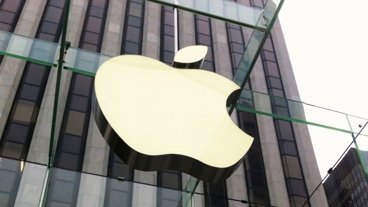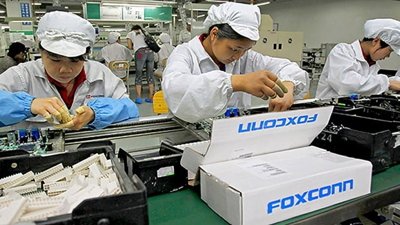China has reportedly agreed to delay a rollout of regulations that would restrict state-operated banks from purchasing or employing foreign equipment and technology.
Citing an unnamed U.S. official, Reuters reports U.S. Treasury Secretary Jack Lew met with Chinese officials, including Premier Li Keqiang, in Beijing presumably to discuss concerns over security measures designed to protect state-backed banking institutions from outside threats.
While government officials did not comment on the matter, the publication said industry groups found the news promising. Specifically, the report mentions BSA The Software Alliance, which represents Apple, IBM, Microsoft, Oracle and others, as well as the Software and Information Industry Association, which represents a number of firms including Google.
Lew recognized China's strict banking protections could present problems for U.S. companies in the region, even if those rules are pending.
"We made clear that suspending them is the right approach," Lew said earlier.
China's decision particularly affects Apple, which is looking to expand its Apple Pay mobile payments service into international markets. As China represents Apple's largest area of potential growth, the country is expected to play a major role in the rollout.
Reports of China's procurement regulations first surfaced in January when western tech companies cried foul over what was deemed to be overly protectionist safeguards. Critics of such measures claim these proposed mandates could potentially hurt the global economy.
Today's report comes two weeks after China decided to halt work on a separate draft counter-terrorism law that would require foreign companies providing telecommunications services to install backdoors, furnish encryption keys and keep gathered data in China.
Earlier this year, Apple reportedly acquiesced to Chinese requests calling for regular product audits. It is not known if these security audits pertain to either China's banking technology regulations or anti-terror legislation.
 AppleInsider Staff
AppleInsider Staff







 Amber Neely
Amber Neely
 William Gallagher
William Gallagher
 Andrew Orr
Andrew Orr
 Andrew O'Hara
Andrew O'Hara



 Mike Wuerthele
Mike Wuerthele









10 Comments
Wow. Clearly, Apple's relationship with China is symbiotic, rather than one-sided. Google must be gnawing it's fist with envy.
Google did the right thing morally. No one seems to ever give them credit for that around here though. Effectively thumbing your nose at them in glee is a bit tasteless.
The advantage Apple has over Google is simply that they indirectly employ a lot of Chinese people and they spend a lot of money there. Perhaps Tim was able to explain how unhelpful to this continuing state off affairs some of their legislative proposals might be.
I suspect the Chinese have not in any way abandoned their Anti-Terror legislation but are perhaps just waiting for Apple to derive a bit more of their income from China before going ahead with it.
If they do that. Apple should pull out and look to India.
Google did the right thing morally. No one seems to ever give them credit for that around here though. Effectively thumbing your nose at them in glee is a bit tasteless.
The advantage Apple has over Google is simply that they indirectly employ a lot of Chinese people and they spend a lot of money there. Perhaps Tim was able to explain how unhelpful to this continuing state off affairs some of their legislative proposals might be.
I suspect the Chinese have not in any way abandoned their Anti-Terror legislation but are perhaps just waiting for Apple to derive a bit more of their income from China before going ahead with it.
If they do that. Apple should pull out and look to India.
Change comes incremetaly.
USA and its companies have no moral ground.
Plain simple.
China has a horrific record of human rights abuses. I trust Tim Cook will be immediately boycotting it by pulling Apple out of China and not selling, researching or making any products there. Oh, he's more concerned with bakers in Indiana not baking cakes, you say? Got it.
I don't understand the comments here re: Google vs. Apple impact. The change in policies would affect all technology companies, including Google, Apple, and all the others. Of course Apple stands to benefit because of their intention to launch Apple Pay in China, but I don't quite follow the anti-Google implications of this article.